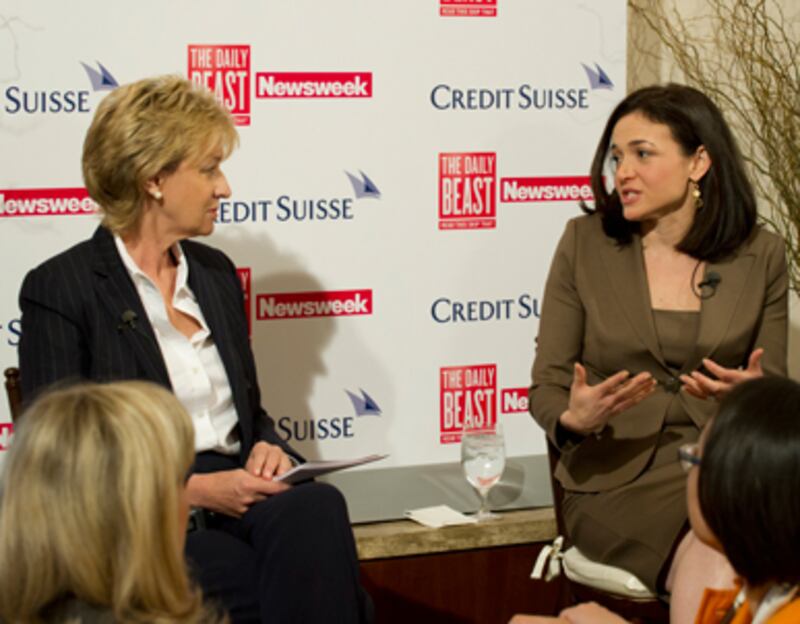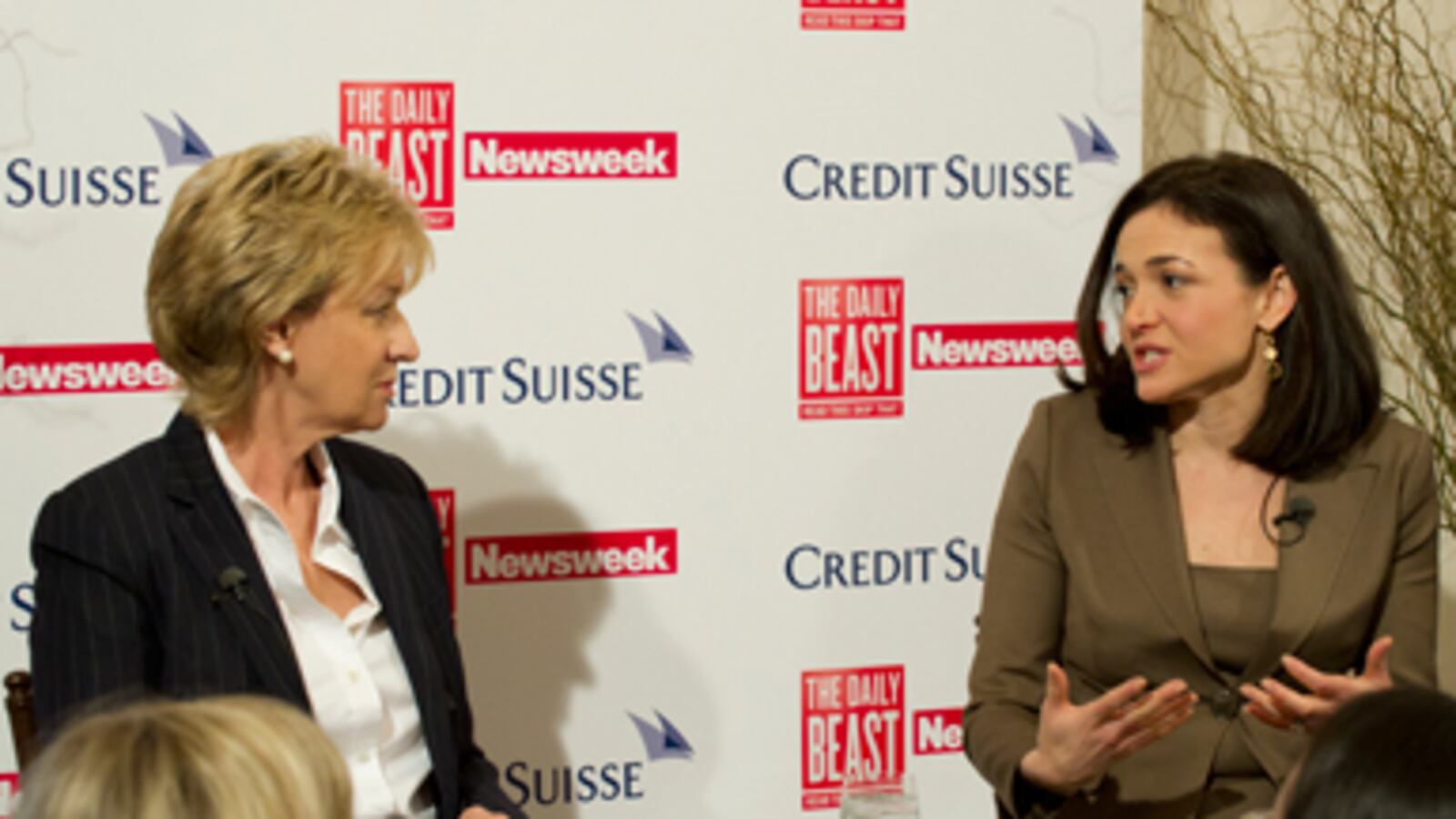It’s the kind of story with an ending that could only happen in the digital era: man suffers stroke, is told his kidneys are failing. Doctors tell him it’ll take five years to rise to the top of the donor list. Wife posts desperate plea on Facebook: “Wishing a kidney would fall out of the sky so my husband can stop suffering.” One hour later, Roxy Kurze, a Michigan Web designer, gets a message from a man she’d met just once. His blood type is O, and he wants to help. “I was just so in shock that I had to sit down,” Jeff Kurze, 35, told the Daily Mail last week, after the transplant was successfully completed. “I could hardly breathe.”
It's stories like these, says Facebook COO Sheryl Sandberg, that highlight what the social networking site is all about. "It takes invisible people and makes them visible," she told a morning crowd on Monday, speaking at a breakfast series sponsored by Credit Suisse and hosted by Newsweek and Daily Beast Editor in Chief Tina Brown.
From the overthrow of Egyptian President Hosni Mubarak to protests in Syria, it's a truth universally acknowledged, as Niall Ferguson puts it in this week's Newsweek, that technology is changing the global balance of power. With 500 million users, it’s no surprise that Facebook, and thus, Sheryl Sandberg, is at the center of this eruption. “You’ve all heard of the ‘Facebook Effect,’” said Tina Brown. “Well, what people are really talking about now is the ‘Sandberg effect.’”
But Sandberg doesn’t take credit for such revolutions, of course—Facebook’s role is simply to put out the technology. "I remember during Tunisia and Egypt, people would say to me, 'Well, you must be so busy with the revolution!'" she laughs. "No, I really wasn't."
Today’s average user has 130 friends—and there are 30 billion pieces of content, from photos to news articles to status updates, that are shared on the site each month.

But she was plenty busy with other things. When Sandberg took the helm as chief operating officer of Facebook, in March 2008, some joked that it was a corporate marriage made in hell: a 38-year-old executive with past jobs at the World Bank and the U.S. Treasury, brought in to babysit a 23-year-old child prodigy who had the most popular social networking site in the world, but no idea how to make money from it. That, Sandberg made clear, couldn’t be further from the truth. In three years at Facebook, the site has grown sevenfold, its valuation soaring into the range of $50 billion. And what about her partner in crime? She calls Zuckerberg the “product visionary of our generation”—what Steve Jobs was to prior generations.
A week after Larry Page officially took over as CEO of Google (Sandberg's former employer), and amid reports that the search engine giant has begun a “war” with Facebook, it was a timely moment for Sandberg to reflect on her company’s place in the world. In February, Facebook announced it had opened a Hong Kong office; more recently, speculation has swirled that the company has signed an agreement the owner of China’s most popular search engine for a Chinese version of the site. While Sandberg wouldn’t discuss details—warning that she hasn’t read a “single article” that’s been accurate—she stated her company’s mission clearly: “We want to connect the world.”
In that respect, Facebook is already on its way. Today’s average user has 130 friends—and there are 30 billion pieces of content, from photos to news articles to status updates, that are shared on the site each month. Ford launched a car on Facebook earlier this year, Vitamin Water recently crowdsourced a new flavor, and parents all over the world continue—as one audience member chimed in—to keep tabs on their teens through the popular social networking platform. Facebook may have overtaken Google as the most visited website last year, but it remains inherently different from her former employer, Sandberg says. “We start from a place of human interaction and connection,” she explains. “Google is much more algorithmically based.” Fun fact: Zuckerberg majored in both computer science and psychology.
Sandberg may be known for her ability to manage operations, and a gregarious management style, but she is also a staunch advocate for increasing women’s presence in business and technology. The problem? Women are stagnating in the top 15 percent of jobs in this country—in every industry. And the sad thing, she says, is that the numbers haven’t increased since 2002. “We have a lot more to do to get women to the top,” she says.
Jessica Bennett is a Newsweek senior writer covering society, youth culture and gender. Her special reports, multimedia packages and original web video have been honored by the New York Press Club, the Newswomen's Club of New York and GLAAD, among other organizations. Follow her on Twitter.






